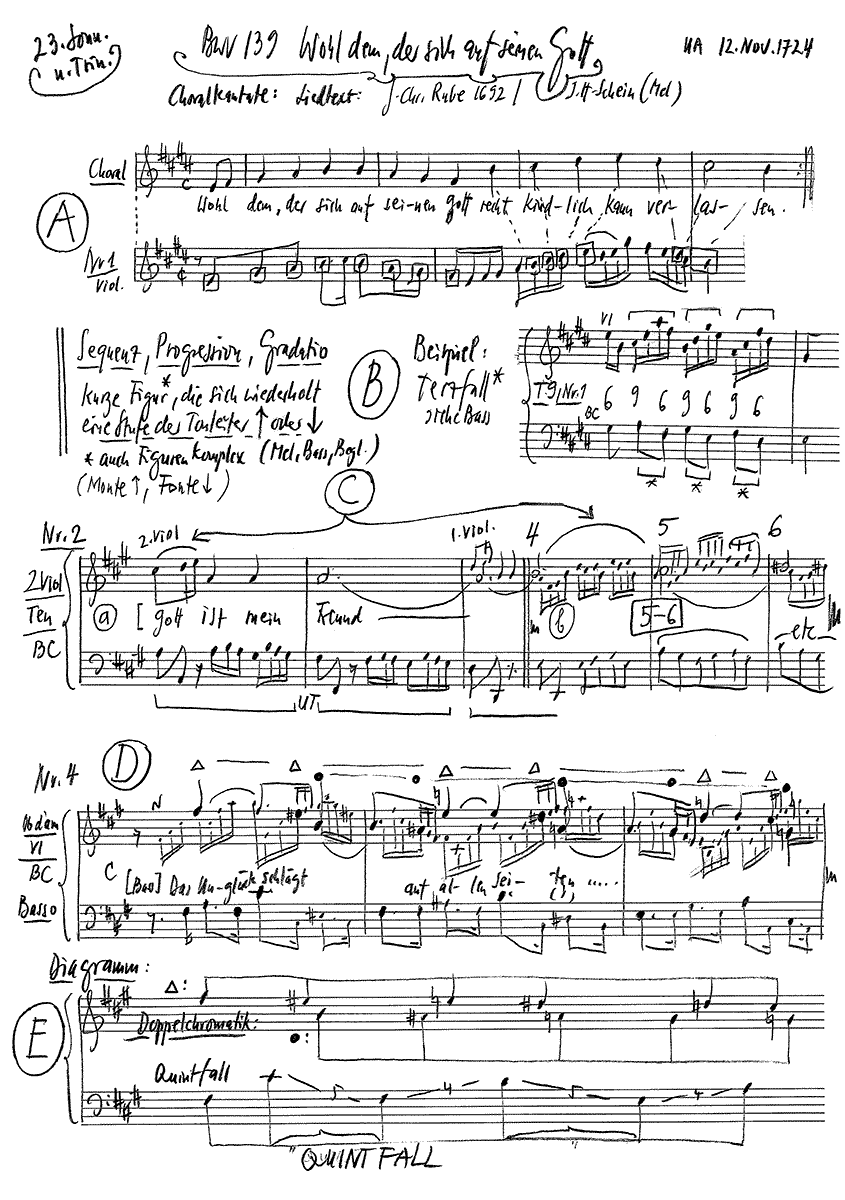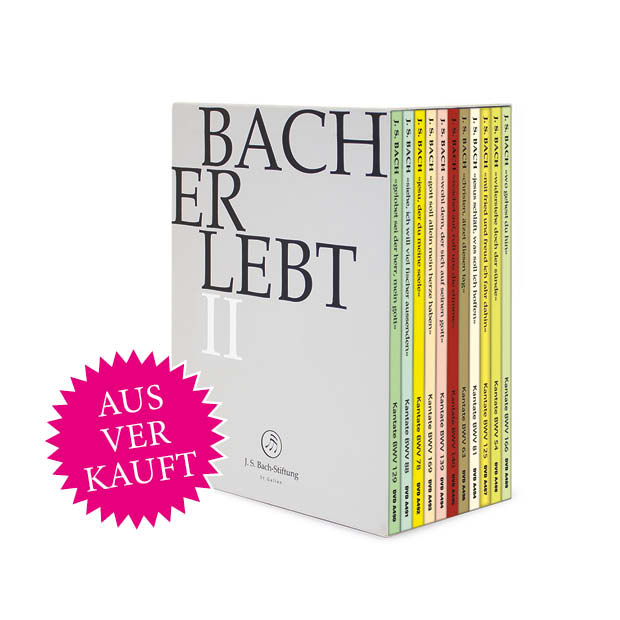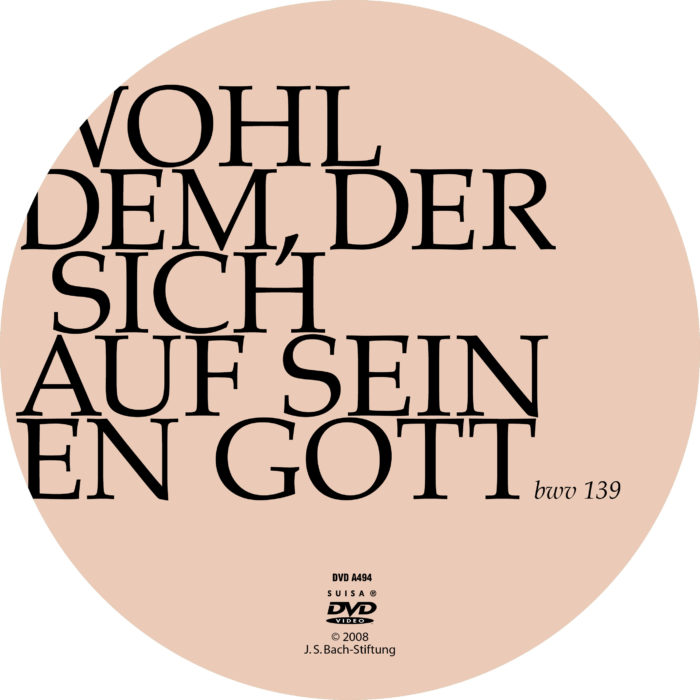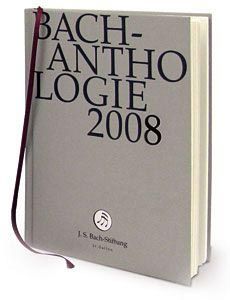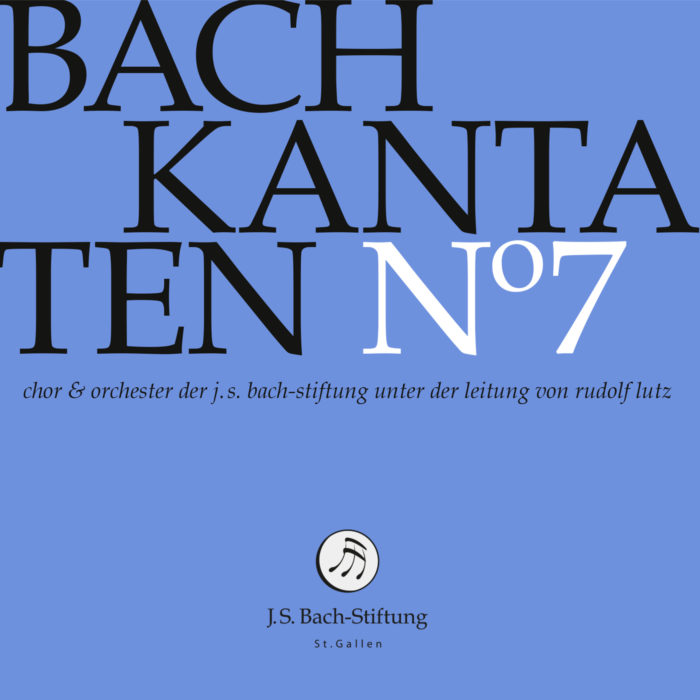Wohl dem, der sich auf seinen Gott
BWV 139 // For the Twenty-third Sunday after Trinity
(Blest he who self can to his God) for soprano, alto, tenor and bass, vocal ensemble, oboe d’amore I+II, bassoon, strings and continuo.
The introductory choir to the chorale cantata “Wohl dem, der sich auf seinen Gott” (Bless he who self can to his God) demonstrates a particularly distinctive relationship between key, sound character and affects of the text.
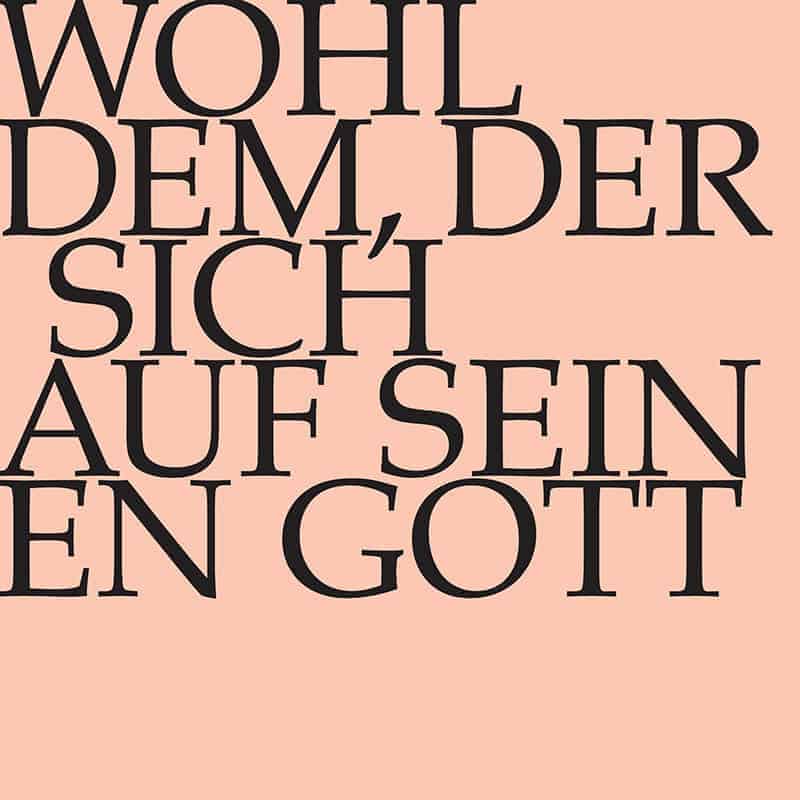
Would you like to enjoy our videos ad-free? Subscribe to YouTube Premium now...
Workshop
Reflective lecture
Choir
Soprano
Susanne Frei, Damaris Nussbaumer, Noëmi Tran Rediger, Madeline Trösch
Alto
Jan Börner, Antonia Frey, Olivia Heiniger, Lea Scherer
Tenor
Marcel Fässler, Clemens Flämig, Walter Siegel
Bass
Fabrice Hayoz, Chasper Mani, Philippe Rayot, William Wood
Orchestra
Conductor & cembalo
Rudolf Lutz
Violin
Renate Steinmann, Martin Korrodi
Viola
Susanna Hefti
Violoncello
Maya Amrein
Violone
Iris Finkbeiner
Oboe d’amore
Luise Baumgartl, Esther Fluor
Bassoon
Susann Landert
Organ
Norbert Zeilberger
Musical director & conductor
Rudolf Lutz
Workshop
Participants
Karl Graf, Rudolf Lutz
Reflective lecture
Speaker
Thomas Held
Recording & editing
Recording date
10/24/2008
Recording location
Trogen
Sound engineer
Stefan Ritzenthaler
Director
Meinrad Keel
Production manager
Johannes Widmer
Production
GALLUS MEDIA AG, Switzerland
Producer
J.S. Bach Foundation of St. Gallen, Switzerland
Librettist
Text No. 1, 6
Johann Christoph Rube, 1692
(the cantata passages marked in grey are direct quotes
from the hymn by Johann Christoph Rube)
Text No. 2–5
Poet unknown
First performance
Twenty-third Sunday after Trinity,
12 November 1724
In-depth analysis
The introductory choir to the chorale cantata “Wohl dem, der sich auf seinen Gott” (Bless he who self can to his God) demonstrates a particularly distinctive relationship between key, sound character and affects of the text. According to the conventions of baroque tonality, the sharp key of E major was best suited to express passionate emotion, even extreme grief. Bach, however, chooses to apply it here to a libretto treating the comfort of having faith in God, who is addressed by the believer as a father and trusted friend. Considering that Bach’s E major compositions are often suggestive of beatitude and rapture, this could simply be his personal preference. Regardless of his motivation, however, the movement’s gently flowing instrumental part (based on the cantata’s hymn) and the somewhat leisurely chorale motet also contain a pure serenity that hints at the delights of true heavenly love, and overcomes all temptation (“sin and world and death”) with childlike trust.
In stark contrast, the following tenor aria “God is my friend” depicts a fighting spirit, with the valiant soloist invoking the protection of the highest and casting back the raging foes together with energetic violin figures. The determined singer drives away the “scorners”, musically underscored by a rapidly descending line, while the concept of “falsity” is unsurprisingly communicated by “false” interval leaps. In this section, the lost, second upper instrumental part has to be completed using the surviving material.
While the threat from “wolves” and other evils remains somewhat abstract in the alto recitative, in the bass aria “Misfortune wraps from all directions”, Bach sketches a more realistic scene of danger and salvation. Here, the strongly dotted rhythms of the oboes d’amore and continuo summon a sense of urgency that frames a violin obbligato of dazzling semiquaver figures. Like Job, plagued by misfortune, the praying people seem completely overwhelmed, indeed almost crushed by the “hundredweight” pedal point of the continuo. Then, suddenly, the clouds part and the movement gains clarity and lightness as “the help of his hand” appears. Help and salvation, however, also require patience: the fact that the “light” of this “hope” can only be seen “far off”, is insightfully presented in a studious andante-arioso; afterwards, the cycle of hardship and constancy resumes its path – Bach certainly delivers a rollercoaster of tempi and affects in this turbulent movement. The string-accompanied soprano recitative then locates the burden of sin – the “greatest foe” – in the depths of the soul, before imploring God to do his part in a somewhat wilful allusion to the gospel story of the tribute money. With its resolute closing chorale “I therefore scorn the host of hell”, a cantata that proved much more substantial its tender opening would suggest comes to a close. Those seeking “God as friend” have much to endure, but also much to demand. Bach, the controversial Thomas cantor, could not only relate to this message, but also render it audible.
Libretto
1. Chor
Wohl dem, der sich auf seinen Gott
recht kindlich kann verlassen!
Den mag gleich Sünde,Welt und Tod
und alle Teufel hassen,
so bleibt er dennoch wohlvergnügt,
wenn er nur Gott zum Freunde kriegt.
2. Arie (Tenor)
Gott ist mein Freund; was hilft das Toben,
so wider mich ein Feind erhoben!
Ich bin getrost bei Neid und Hass.
Ja, redet nur die Wahrheit spärlich,
seid immer falsch, was tut mir das?
Ihr Spötter seid mir ungefährlich.
3. Rezitativ (Alt)
Der Heiland sendet ja die Seinen
recht mitten in der Wölfe Wut.
Um ihn hat sich der Bösen Rotte
zum Schaden und zum Spotte
mit List gestellt;
doch da sein Mund so weisen Ausspruch tut,
so schützt er mich auch vor der Welt.
4. Arie (Bass)
Das Unglück schlägt auf allen Seiten
um mich ein zentnerschweres Band.
Doch plötzlich erscheinet die helfende Hand.
Mir scheint des Trostes Licht von weiten;
da lern ich erst, dass Gott allein
der Menschen bester Freund muss sein.
5. Rezitativ (Sopran)
Ja, trag ich gleich den grössten Feind in mir,
die schwere Last der Sünden,
mein Heiland lässt mich Ruhe finden.
Ich gebe Gott, was Gottes ist,
das Innerste der Seelen.
Will er sie nun erwählen,
so weicht der Sünden Schuld,
so fällt des Satans List.
6. Choral
Dahero Trotz der Höllen Heer!
Trotz auch des Todes Rachen!
Trotz aller Welt! Mich kann nicht mehr
ihr Pochen traurig machen!
Gott ist mein Schutz, mein Hilf und Rat;
wohl dem, der Gott zum Freunde hat!



